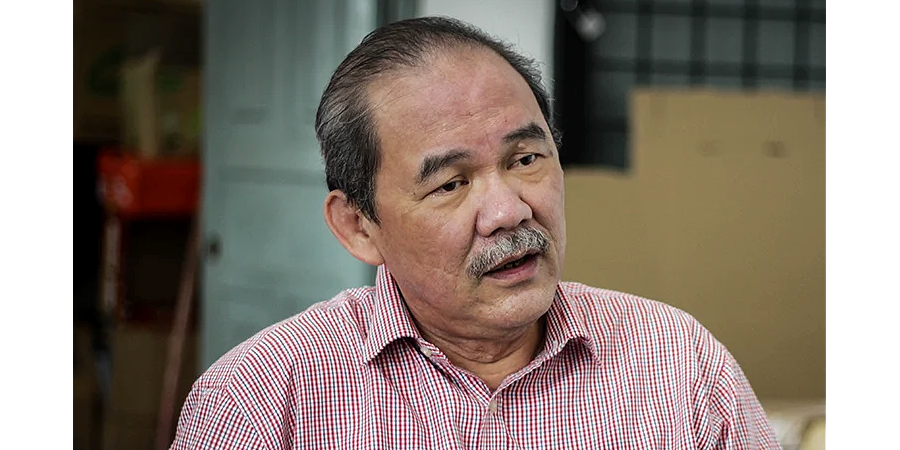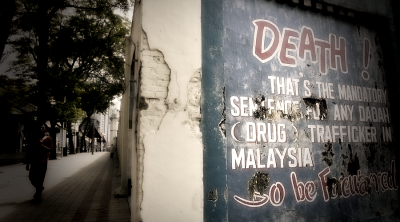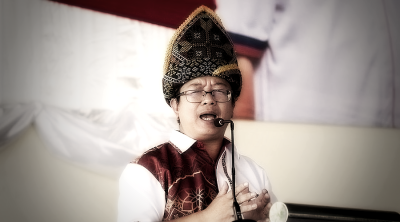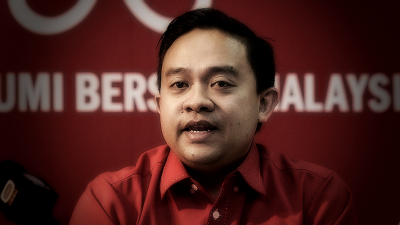
A dear friend, former Bersih chairman Thomas Fann, forwarded to me an article entitled “100,000 left Malaysia–and we’re still playing ‘gotcha’ politics” which he has written in his blog on August 12.
The following are excerpts of his piece which I think are important to highlight his concerns on the matter.
“The Home Ministry yesterday revealed, in a written reply to Datuk Seri Takiyuddin Hassan (PN–Kota Bharu) in Parliament, that nearly 100,000 Malaysians have become Singaporeans over the past decade.
“That figure should be a wake-up call for every policymaker to ask: Why are so many of our people leaving, and what will it take to make them stay?
“Yet instead of grappling with these urgent questions, some politicians, including Umno Youth chief Dr Akmal Saleh, have chosen to focus on minor errors or administrative slip-ups, turning them into political ammunition.
“This is not leadership. It is irresponsible political opportunism,” Fann added.
I thank my friend for alerting me to this important issue which was brought up in Parliament this week. I have not been paying much attention to parliamentary affairs of late.
Allow me to follow up on the Malaysian diaspora subject which I also find worrying, even if those in power couldn’t care less about their fellow citizens leaving the country for good.
If there is a voice constantly appealing and cajoling our very own people to return and contribute to our nation, that must surely be from Sarawak Deputy Premier Dr Sim Kui Hian.
Indeed, Dr Sim has emerged as one of the most persistent voices calling on Sarawakians living and working abroad to return and contribute to the state’s development.
I’m proud of a fellow Sarawakian who is earnest and sincere in his appeal.
Dr Sim’s message is also simple but compelling: Sarawak needs its own talent to drive progress, rather than relying excessively on outside expertise.
He frequently stresses that Sarawakians have a unique understanding of the state’s culture, needs, and aspirations—qualities that cannot be easily replicated by outsiders.
For Dr Sim, brain drain is not just an economic issue but a question of identity and pride.
Back to the subject matter, Fann wrote that the migration trend is not unique to Malaysia-Singapore relations.
The World Bank and various migration studies have noted a steady outflow of Malaysians to other countries as well—to Australia, the UK, the US, and across the Middle East.
So, why do Malaysians leave? The main reasons are familiar but persistent: stagnant wages, limited career advancement, political instability, corruption, racial and religious discrimination, concerns over the quality of education and healthcare, and a perception that meritocracy is often sacrificed for political patronage.
For many, the “push” factors at home outweigh the “pull” of patriotism, especially when they see peers thriving overseas in fairer, more transparent systems.
The government’s public stance is that it is aware of this “brain drain” problem, but its actions suggest a lack of urgency or seriousness.
Occasional programs to lure Malaysians home—such as tax incentives or higher pay for returnees—have had limited impact because they don’t address the deeper, systemic grievances.
Without genuine political will to reform institutions, ensure equal opportunity regardless of race, improve governance, and create a dynamic economy, these initiatives feel like cosmetic measures rather than solutions.
In order to highlight how serious the issue really is, here’s some up-to-date data available online and what the latest figures and government responses reveal:
Approximately 1.86 million Malaysians, or about 5.6 percent of the population, have migrated abroad over the past five decades—well above the global average of roughly 3.6 percent.
Singapore as the top destination: Around 1.13 million Malaysians, roughly 60 percent of the diaspora, are residing in Singapore.
A governmental study shows that among Malaysians in Singapore, 39 percent are skilled and 35 percent are semi-skilled.
Earlier, we have noted why Malaysians leave. Now, what will make Malaysians stay?
I believe that to effectively curb the brain drain, Malaysia must offer more than slogans.
We need real, systemic change and the sooner the Madani folks put their heads together and earnestly implement the necessary changes, the better.
We should start by offering competitive compensation and benefits to match regional benchmarks, especially for fresh grads and skilled professionals.
Then, put in place a merit-based systems that remove politicized ceilings and uplift all Malaysians equally. This move is urgent and pressing.
Career growth structures—clear pathways, flexible work, innovation-driven roles and acknowledged talent.
Workers need to see improvement in their careers, no one wants to remain stagnant with no opportunity to move up.
Malaysia must continue to see an increasing investment in hi-tech sectors, digital economy, and specialized training e.g., semiconductor strategy and AI initiatives.
Finally, and most importantly, we need an inclusive governance, with transparent, accountable policies that foster trust across communities.
The prevailing racial tension will make us lose trust in one another and the Madani government must quickly quell this divisive and unhealthy trend.
Most of the data available underscores a systemic migration—not just of numbers, but of Malaysia’s brightest minds.
Government and private-sector plans are emerging, but lasting change will require consistency, fairness, and meaningful opportunity.
When Malaysians feel valued, not just monetarily, but socially and professionally, they have stronger reason to stay and rebuild their future right at home.
A happy and contented citizen will not think of moving to another place.
People naturally stay where they feel valued, safe and able to thrive, because home is not just where you live, but where your heart and hopes are anchored.
(Francis Paul Siah is a veteran Sarawak editor and currently heads the Movement for Change Sarawak, MoCS. He can be reached at [email protected].)
ADVERTISEMENT
ADVERTISEMENT







































